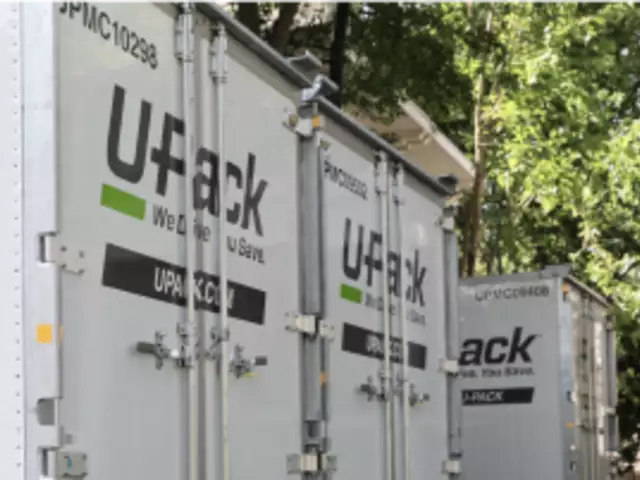What You Need to Know About Recent Changes to Co-Ops & Reverse Mortgages in New York
What You Need to Know About Recent Changes to Co-Ops & Reverse Mortgages in New York
NYC-based boutique law firm Pardalis & Nohavicka brings the latest legal updates from the world of real estate. Pardalis & Nohavicka handles an eclectic array of matters, representing individuals and business owners in civil litigation, criminal cases and business transactions, currently litigating and representing clients throughout the United States and around the world.
It seems as though the rules keep changing for co-op boards, making it increasingly difficult for borrowers to fully comprehend the ever-changing law. For instance, under former New York state law, reverse mortgages were only available to one- to four-family residences and condominiums. Noteably, a reverse mortgage differs from a regular mortgage in that no loan payments become due on the loan until the end of the mortgage term or until the property is sold or the borrower dies.
However, on January 11, 2022, the New York State Assembly for the first time passed a law that made borrowers in cooperative apartments eligible for reverse mortgages. Specifically, Assembly Bill 1508 allows reverse cooperative apartment unit loans (or reverse mortgages) available to borrowers who are 62 years of age or older or individuals who use the apartment as their primary residence. This law was important as only condominium and real property owners were formerly allowed to secure a reverse mortgage.
This was based on their ability to use their ownership of the real estate as a form of collateral for their loan. Now, the new bill will, for the first time, allow condominium residents (who were not designated as the true legal owners of the property by deed) to claim the right of “lifetime possession of the subject premises of the cooperative apartment unit, which is the security for the reverse cooperative apartment unit loan.” See A-1508 (2)(A). The bill passed the State Assembly 148-1 and the Senate 62-1 and is set to go into effect in May of 2022.
What advantages does the new law provide for borrowers?
For the first time, during the pandemic, residents of co-operatives (co-ops) who are age 62 and older will now be eligible for reverse mortgage loan relief. Notably, the law puts the onus on the mortgage lender to protect the borrowers by requiring the mortgage lender to:
- Obtain a $100,000 surety bond to cover claims in the event that the lender defaults on its obligations to the borrower.
- Obtain $10 million in capital to cover the loan.
- Explain the loan terms of the reverse mortgage and how they comply with New York state law and Housing and Urban Development standards. These standards expressly require the mortgage lender to satisfy a number of requirements, including:
- Disclosing the term and schedule of payments to be made by the borrower
- Advising all loan applicants to consult with the appropriate authorities regarding the tax and estate planning consequences of the loan
- Describing pre-payment and refinancing features of the loan, where applicable
- Notifying the borrower of the interest rate on the loan and the estimated total interest rate due on the “Reverse Cooperative Apartment Unit Loan”
- A statement setting forth the events that could cause the borrower to default on the loan
What is required of borrowers in order to obtain reverse mortgages for their apartment condominiums?
First, borrowers must consult with a certified and approved reverse mortgage housing counselor to confirm that the borrower financially qualifies for the loan and interest terms of the reverse mortgage loan. Borrowers must also complete a financial assessment with their counselors.
Next, the borrower must complete a required application for loan relief. This includes a statement explaining its terms as prepared by the U.S. Department of Housing and Urban Development explaining in clear English the borrowers’ rights and obligations under the loan.
The borrower’s loan must be approved by the local co-op board, and the borrower may not default under the reverse mortgage loan. Defaulting may include:
- Ceasing to be a primary resident of the co-op for reasons other than death
- Failing to occupy the property for a period of 12 or more consecutive months
- Failing to pay monthly maintenance fees, special assessment fees, mortgage insurance payments or other mortgage insurance payments that are not advanced by the lender
Who can qualify as authorized lenders under NYS Law A-1508?
Lenders can include any bank; trust company; national banking association; savings bank; savings and loan association; federal savings bank; federal savings and loan association; credit union; federal credit union; or any licensed mortgage banker approved to make reverse mortgage loans by the Superintendent of New York pursuant to Bill A-1508 (C).
How long does a borrower have to get out of the loan if they change their mind after being approved for a reverse condominium mortgage?
Borrowers have a three-day right of rescission. Otherwise, under the new law, the resident’s reverse mortgage could be paid in one of the following ways:
- Term Payment:This option would require the lender to make equal monthly payment options to the borrower for a fixed term of months to be chosen by the borrower.
- Tenure Payment:This option would require the lender to make equal monthly payments to the borrower until the loan is prepaid in full or becomes due and payable.
- Line of Credit:unscheduled payments or in installments, at times and in an amount of your choosing until the line of credit is exhausted.
What happens if the borrower fails to satisfy their obligations?
Every borrower who enters a reverse mortgage as a cooperative apartment resident must review and sign a form that acknowledges that they could lose their cooperative apartment unit to foreclosure and be subject to legal foreclosure proceedings.
Where would the foreclosure proceedings take place?
The condo resident would be subject to foreclosure proceedings in the county where the condominium was located. By example, if the reverse mortgage applicant defaulted at a condominium located in Queens, the foreclosure proceeding would take place in the Queens County Supreme Court. On the other hand, it the resident lived in a condominium on Staten Island, the proceeding would take place in the vicinage of the Richmond County Supreme Court.
What is necessary to avoid foreclosure?
Potential borrowers for reverse mortgage relief should consult with an experienced commercial lawyer and perhaps even consider consulting with a tax or estate lawyer. By doing so, they’ll ensure that they understand the language in the application and default provision forms and ensure that the lender is in full compliance with all fair consumer loan and U.S. Department of Housing and Urban Development requirements. All lenders and cooperative apartment unit borrowers seeking reverse mortgages would be strongly recommended to consult with legal counsel prior to closing on their transactions.
What does the future look like for reverse mortgages in co-ops?
The new law is a bright light for elderly residents who need stable housing to remain safe during this unprecedented pandemic. In light of the new struggles of older residents who now occupy older cooperatives in New York City this new legislation will allow more of these residents to safely remain in their dwellings, by affording these cooperative owners with the same rights to reverse mortgage relief as were previously available to condominium and single family residents. Plus, the law will also allow lenders of cooperatives to secure private label mortgages in lieu of conventional home equity mortgages that are still not allowed for co-op purchases.
About
Taso Pardalis is a founding partner of the Law Offices of Pardalis & Nohavicka, a leading full- service NYC law firm with offices in Manhattan, Queens and WeWork. Taso may be a well-known attorney with many cases making headlines in major media outlets, but at heart, he is a true entrepreneur that believes in supporting the small business community. His areas of concentration are: Intellectual Property, Trademarks, Corporate, Business Law and Real Estate Law.______________
Jacqueline Weiss, a graduate of Union College, received her Juris Doctor from Albany Law School and is admitted to practice in the States of New York and New Jersey. She has completed NYS Basic Mediation Training for Community Mediation and interned with Justice Pineda-Kirwan in the NYS Supreme Court of Queens County and is now a full time attorney at Pardalis & Nohavicka. Ms. Weiss has experience in healthcare and the defense of professional liability claims involving physicians, hospitals and nursing homes.



